UPSC Daily Current Affairs- 8th June 2024 | Current Affairs & Hindu Analysis: Daily, Weekly & Monthly PDF Download
GS-I/History an Culture
131 years of Gandhiji’s Natal Satyagraha
Source: Indian Express
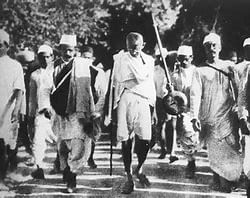
Why in News?
On June 7, 1893, Mahatma Gandhi faced racial discrimination when he was forced off a first-class train compartment at “Pietermaritzburg railway station” in South Africa.
This event ignited the spirit of civil disobedience in him through his first non-violent protest in the “Natal Satyagraha”.
About the Pietermaritzburg Incident
- Gandhi’s forced removal from a first-class train compartment in 1893 served as a catalyst for his commitment to resisting racial discrimination.
- This event inspired him to pursue nonviolent resistance, planting the seeds for his philosophy of Satyagraha.
Its’ Aftermath
Formation of Natal Indian Congress and Advocacy
- Establishment: Gandhi organized the Indian community in Durban and established the Natal Indian Congress (NIC) in 1894 to advocate for their rights.
- Campaigns: He led various initiatives, including petitions and boycotts, to challenge discriminatory laws and policies in South Africa.
Natal Satyagraha
- Asiatic Registration Act: The enactment of the Asiatic Registration Act in 1906 led to the Natal Satyagraha, a protest against this discriminatory legislation.
- Leadership and Strategy: Gandhi became the leader of the movement, promoting nonviolent resistance and civil disobedience.
Characteristics and Impact of Natal Satyagraha
Mass Participation
- Widespread Support: The movement gained widespread backing from the Indian community, with thousands participating in nonviolent protests.
- Mobilization for Welfare: Gandhi mobilized support for Indian welfare and founded the Transvaal British Indian Association in Johannesburg in 1903.
Arrests and Imprisonment
Consequences of Civil Disobedience:
- Gandhi and numerous others were arrested and imprisoned for their acts of civil disobedience.
- He endured multiple incarcerations for his nonviolent protests, notably during the Volkrust Satyagraha in 1913.
International Attention and Negotiations
- Global Focus: The Satyagraha campaign drew international attention to the plight of Indians in South Africa.
- Negotiations and Legislation: The movement's visibility led to negotiations, ultimately resulting in the Indian Relief Act in 1914.
GS-I/Indian Society
Andaman’s Onge Tribe
Source: Deccan Herald

Why in News?
The king and queen of the “Onge tribe” welcomed a baby boy in the Andaman Islands, marking a significant moment for the tribe. With the arrival of the newborn, the tribe’s total population now stands at 136, as confirmed by an official source.
About the Onge Tribe
- Background: The Onge people are categorized as Particularly Vulnerable Tribal Groups (PVTGs) and are indigenous to the Andaman Islands.
- Lifestyle: Traditionally, they have been hunter-gatherers and fishermen, supplemented by some forms of cultivation.
- Population Decline: Colonization significantly reduced their population, dropping from 672 in 1901 to approximately 100 individuals.
- Religious Practices: The Onge practice a form of animism, with a significant emphasis on ancestor worship.
- Decision-Making: Traditional decision-making involves reaching consensus within the group.
- Current Settlements: Today, surviving members reside in two reserve camps located on Little Andaman: Dugong Creek in the northeast and South Bay.
- Genetic Affiliations: Genetically, the Onge exhibit distant relations to East Asian populations and share affinities with Southeast Asian Negrito ethnic groups.
Other Indigenous People of Andaman and Nicobar
1. Great Andamanese Tribe
Population and Settlement:
- Historically significant, the Great Andamanese tribe currently resides on Strait Island under the Andaman & Nicobar Administration.
- Their population has drastically declined to 43 individuals as per the 2001 census, primarily due to diseases and other challenges.
Government Support:
- The administration provides housing, coconut plantations, and rationing to support their livelihoods and overall well-being.
2. Jarwas Tribe
Location and Behavior:
- Inhabiting the Western coast of the Middle and South Andaman Islands, the Jarwas are known for their historically hostile behavior.
- Since 1974, they have displayed some receptivity to friendly contact expeditions.
Lifestyle:
- The Jarwas are nomadic hunters and gatherers, utilizing traditional methods such as bows and arrows for hunting and fishing.
3. Sentinelese Tribe
Location and Attitude Towards Outsiders:
- The Sentinelese reside on the small North Sentinel Island and maintain a wary stance towards outsiders.
- Contact expeditions have cautiously progressed since 1991, despite initial skepticism.
GS-II/International Relations
Preparing for ASEAN-India FTA Review
Source: Business Line

Why in News?
The Commerce Department is gearing up for the upcoming negotiations on the ASEAN-India FTA review. The ASEAN-India FTA, while beneficial, has led to a widening trade deficit for India.
About ASEAN
| Details | |
| Establishment |
|
| Chairmanship |
|
| Objective |
|
| Members |
|
| Objectives |
|
| ASEAN Charter |
|
| ASEAN Plus Six |
|
| India and ASEAN |
|
| Delhi Declaration |
|
| Delhi Dialogue |
|
| ASEAN-India Centre (AIC) |
|
| Strategic Cooperation |
|
GS-II/International Relations
India issues new advisory against fake job rackets in Myanmar, flags another ‘dangerous’ area
Source: MSN
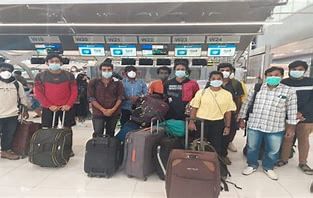
Why in News?
The advisory was shared on social media by the Indian Embassy in Yangon on Monday (June 3 2024), urging caution against job offers in the Pha Lu area, south of Myawaddy town. This region has recently emerged as a hotspot where most Indian victims are being trafficked, often via Thailand.
Highlights from Indian Embassy Advisories
- Warning Against Fake Job Rackets: The Indian Embassy has issued multiple advisories cautioning against fake job rackets in Myanmar, emphasizing the ongoing threat they pose.
- New Danger Zone Identified:
- The Pha Lu area, south of Myawaddy town, has been marked as a new hotspot for trafficking, requiring increased vigilance.
- Previous advisories highlighted risky areas including Myawaddy, Yangon, Laukkaing, Lashio, and Tachileik.
- Rise in Crime Syndicate Victims: Indian nationals have increasingly become victims of crime syndicates in the Myawaddy region on the Myanmar-Thailand border.
- Broader Insecurity Concerns:
- Beyond Indian nationals, individuals from countries like Malaysia and the UAE have also been targeted by these syndicates.
- Caution against job offers from social media or unverified sources.
- Security Deterioration Post-Coup: The security situation in Myanmar has worsened since the February 2021 military coup, exacerbating human trafficking issues.
- Consultation Urged: Indian nationals are encouraged to verify job offers and consult respective Indian embassies before accepting employment abroad.
India-Myanmar Bilateral Relations
- Historical Significance: India and Myanmar signed a Treaty of Friendship in 1951, with Prime Minister Rajiv Gandhi's 1987 visit laying the groundwork for stronger ties.
- Economic Cooperation: India ranks as Myanmar's 4th largest export market and 5th largest import partner, achieving a bilateral trade target of $1 billion by 2017.
- Strategic Cooperation: India's engagement with Myanmar aims to counter China's growing regional influence and bolster its own standing.
- Security Ties: Both nations collaborate on security issues, including combating drug trafficking and insurgent groups along the border.
- Recent Developments: India gifted Myanmar its first submarine and conducted joint operations against insurgent camps.
- Challenges: Challenges include the Rohingya crisis, military coup, and exploitation of porous borders by terrorist outfits and insurgent groups.
Way Forward
- Monitoring and Collaboration: Collaboration with social media platforms to monitor and remove fraudulent job postings, coupled with legal action against offenders.
- Bilateral Cooperation Strengthening: Enhanced cooperation with Myanmar and neighboring countries like Thailand, Laos, and Cambodia to dismantle human trafficking networks and ensure the safe return of victims.
GS-III/Economy
GNSS-based Electronic Toll Collection (ETC) system
Source: Business Standard
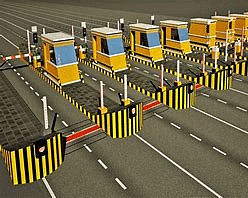
Why in News?
NHAI has invited expressions of interest (EoIs) from around the world for the implementation of GNSS-based (satellite-based) electronic toll collection to provide a seamless and barrier-free tolling experience for National Highways users.
GNSS-based Electronic Toll Collection (ETC) System:
- Uses space tech to collect tolls.
- Tracks vehicles and calculates tolls based on distance.
- Cars with special gadgets pay tolls.
NHAI Implementation Plan:
- Adding it to the FASTag system.
- Both old and new ways used at first.
Significance:
- Helps cars move smoothly.
- No barriers, no stops for tolls.
- Pay only for how far you drive.
- Makes collecting tolls better, stops cheating.
GS-III/Economy
Capital Account Convertibility
Source: Indian Express

Why in News?
To stay “future-ready” for India’s fast-growing economy, the Reserve Bank of India (RBI) has set aspirational goals: capital account liberalization, internationalization of the Indian rupee (INR), universalizing digital payments, and globalizing India’s financial sector over a multi-year timeframe.
About:
- Balance of Payments Account: A comprehensive record of a country's financial transactions with the rest of the world.
- Current Account: Manages the trade of goods and services between a country and other nations.
- Capital Account: Oversees the movement of capital across borders, including investments and loans.
- Current Account Convertibility: Allows the conversion of a country's currency (like the Indian rupee) into other currencies without restrictions for transactions related to trade in goods and services.
- Capital Account Convertibility: Grants freedom to conduct investment transactions without limitations. This includes converting rupees into foreign currency for asset acquisitions and permitting Non-Resident Indians (NRIs) to bring in foreign currency for purchasing assets in India.
Importance:
- Caution in Developing Countries: Capital flows can be volatile, leading to excessive currency appreciation or depreciation, which can disrupt monetary and financial stability.
- India's Progress: Adopted a strategy of partial capital account convertibility. This approach was applauded after the 1997 East Asian currency crisis, as it helped mitigate risks associated with high current account imbalances and volatile short-term capital flows. The 2006 S. S. Tarapore committee report emphasized the importance of caution, even for countries with strong fiscal positions, due to the potential for currency crises and rapid exchange rate fluctuations.
GS-III/Environment
NaturAfrica initiative
Source: World Bank
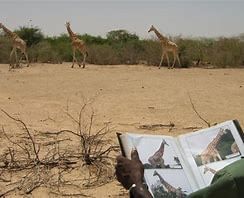
Why in News?
The European Commission (EC) has removed Tanzania from the list of countries eligible for its 18 million Euro conservation grant to be launched in East Africa as part of its NaturAfrica initiative.
NaturAfrica Initiative:
- Supported by the European Union (EU).
- Aims to conserve biodiversity in Africa with a people-centric approach.
- Focuses on identifying key conservation landscapes.
- Aims to create jobs, enhance security, and promote sustainable livelihoods.
- Structured around short-term actions and medium-term support.
- Addresses root causes of biodiversity loss and environmental degradation.
European Commission:
- Executive body of the European Union.
- Proposes new laws and policies.
- Monitors implementation and manages the EU budget.
- Ensures correct application of EU policies and laws across member states.
- Comprises 27 members known as Commissioners.
- Led by a President elected by the European Parliament and proposed by the European Council.
GS-I/Geography
Mongla Port
Source: First Post
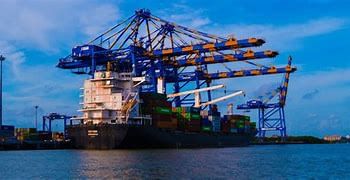
Why in News?
Location:India is looking to operate the Mongla Port in Bangladesh and build a new terminal, aiming to counterbalance China's strategic presence in the region.
- Situated in the Bagerhat District of Bangladesh.
- Located 62 km north of the Bay of Bengal coastline.
- Positioned at the confluence of the Pasur River and the Mongla River.
- Surrounded and protected by the Sundarban mangrove forest.
- Second largest seaport in Bangladesh, following Chittagong.
- Provides strategic access to India's northeastern states like Assam, Tripura, and Meghalaya.
- Reduces distance and transportation costs for goods to and from these regions.
- Offers a gateway for trade to India's northeastern states.
- India Ports Global Limited (IPGL) has shown interest in operating Mongla Port, marking its third international port operation after Chabahar in Iran and Sittwe in Myanmar.
- Expansion project initiated through a Memorandum of Understanding (MoU) signed by India and Bangladesh in 2015.
- Aims to enhance transit of goods from Mongla Port to India's northeastern states via waterways, roads, and railways.
|
61 videos|5403 docs|1144 tests
|
FAQs on UPSC Daily Current Affairs- 8th June 2024 - Current Affairs & Hindu Analysis: Daily, Weekly & Monthly
| 1. What is the significance of Gandhiji’s Natal Satyagraha and how long ago did it take place? |  |
| 2. What is the ASEAN-India FTA Review and why is it important? |  |
| 3. How is India addressing fake job rackets in Myanmar and what precautions are being advised? |  |
| 4. What is the GNSS-based Electronic Toll Collection (ETC) system and how does it work? |  |
| 5. What is Capital Account Convertibility and why is it important for the economy? |  |





















